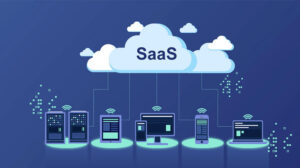Why do we use email? While it has been a staple of professional life for years, it tends to fall short in a number of different ways. In addition to being weak security-wise, it’s causing a great deal of frustration and anxiety. Much of it has to do with the sense of urgency that comes from reading, returning and sending messages.
“Researchers have coined a term, ‘telepressure,’ to describe our urge to respond immediately to emails,” wrote Wall Street Journal contributor Rachel Feintzeig. “The definition also includes those who find themselves repeatedly thinking about how they need to return a note to their colleague or jot an email back to their boss.”
The fact of the matter is that email is over-used. It tends to be the go-to channel for every sort or communication – regardless of the importance. Spam and phishing scams originating outside the company get mixed in with sensitive documents, causing confusion and stress. If there’s one place where you don’t need any more mental anguish, it’s probably the office.
One way to cut down dependence on email is to supply other channels with which to share information. One powerful way to accomplish this is through cloud-based faxing. This technology combines mobile convenience with the ability to securely transmit information. This can be especially valuable for those organizations that are required by law to use fax machines.
Ignoring the appeal of email
Email could be considered somewhat of a workplace crutch. According to InformationWeek contributor Shane O’Neill, much of email’s appeal comes from how convenient it can be to use – and we’re succumbing to it more than we should.
“Email’s lure is understandable,” O’Neill wrote. “It casts a wide net and can solve problems quickly. It’s become as comfortable as an old winter coat. I couldn’t do my job without it.”
But he adds that “we need to loosen [email’s] grip on our throats.” The problem with relying on email is that everyone does. Have a funny picture to share with the office? Email. Trying to figure out when three colleagues are available for a meeting? Email. Posing as a Nigerian prince that needs bank account information from good Samaritans? You guessed it – email. Because everything ends up in a single inbox, making sense of it all – and organizing accordingly – can be a complete nightmare.
But while email might not be going anywhere soon, it does need to be dealt with in modern ways. The main problem is that email is often the only channel available to enterprise professionals. Adding email alternatives like cloud-based fax and FoIP solutions to the mix will allow workers to have a better sense of what is of dire importance or critical sensitivity.
Cut down on email, cut down on stress
It may seem like a trivial detail, but email overload can have powerful repercussions on a business. The anxiety that can accompany excessive email use hurts employees and their companies alike.
“If organizations don’t start to make a change, they could face costs like decreased retention rates and work quality or even increased health care costs,” wrote Feintzeig.
There is a simple way to help on this front – invest in tools and email alternatives better suited for the modern workforce. Things have changed since email was first introduced, from people to technology. It’s time to get serious about enabling a wider variety of assets that can help people keep track of their correspondences.
Enhance enterprise communication, collaboration and compliance efforts with a proven FoIP solution from FaxCore. Contact FaxCore today to learn more about their ‘Partly-Cloudy’ fax solutions.




